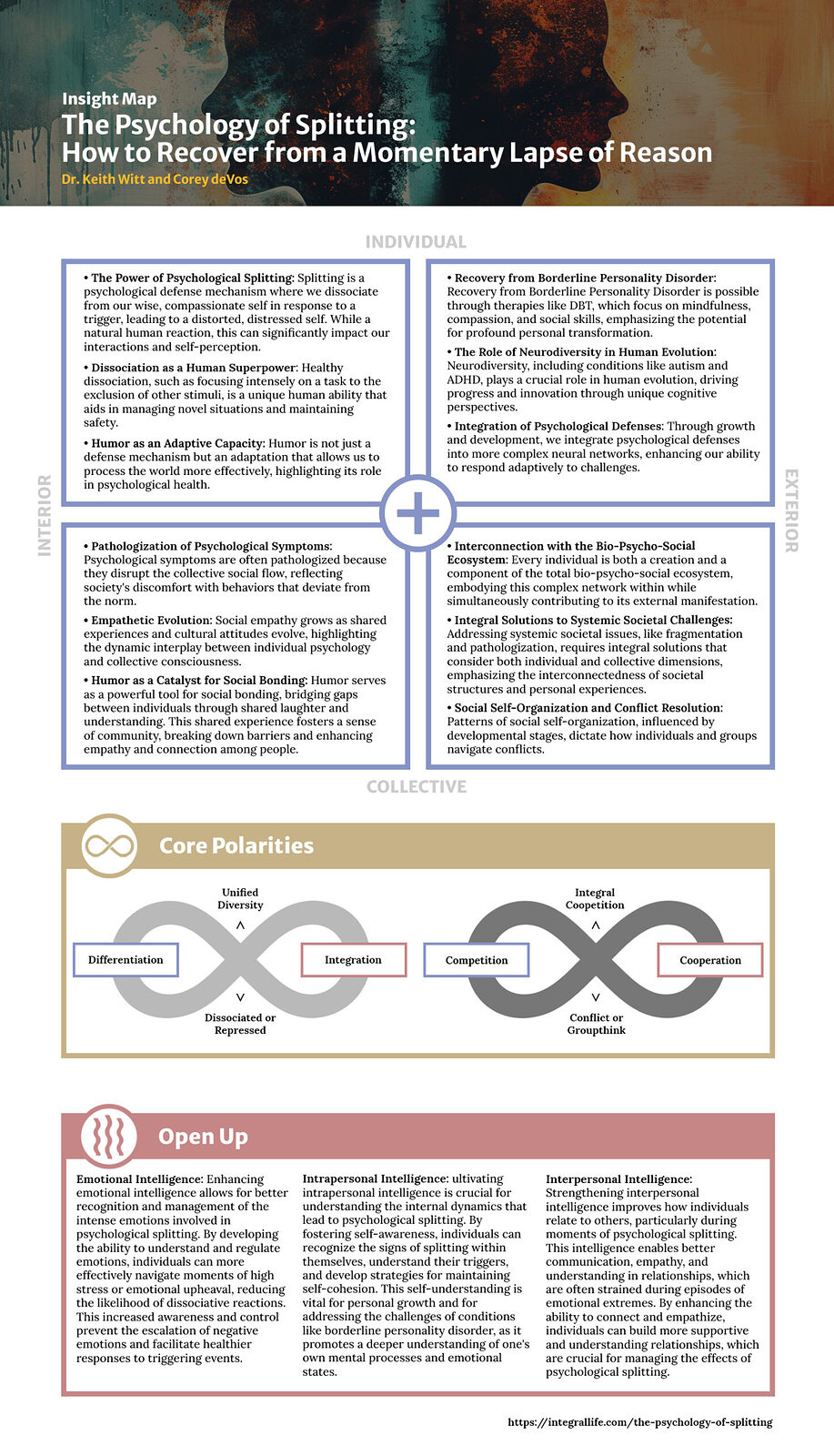How to Recover from a Momentary Lapse of Reason
You are driving along in your car, your mind wandering from one place to the next, when suddenly someone cuts into your lane and causes you to slow down and miss the green light. At that moment, you feel a powerful rage erupt within you. You honk your horn, slam your steering wheel, maybe yell a cuss word or two in order to express your anger. “What an absolute jerk,” you think to yourself.A moment later, the rage passes, and you find yourself surprised by your own reaction. It was just a mild inconvenience, after all, and for all you know the other car was rushing due to some emergency you couldn’t possibly know about. “Why did I get so angry?” you ask yourself. “Why did I suddenly lose control? Where did all that patience and equanimity and empathy go?”
Don’t worry, it didn’t go anywhere. You simply experienced a temporary state of psychological splitting, a momentary dissociation that all of us have encountered at one time or another.
“Splitting” is a common defense mechanism that allows people to tolerate any number of challenging or even overwhelming emotions, typically by protecting strong negative qualities onto others. Often experienced during adolescence, splitting can also occur in adults during times of high or sudden stress. Typically these states are quickly recognized and regulated by the rest of the self-system after they occur, which are those times when we say to ourselves “whoa, I really lost it there.” For others, particularly people with borderline personality disorder, it can be more difficult to regulate ourselves out of these states, as Dr. Keith explains in this episode.
Although it is often regarded as a pathology, dissociation, says Keith, can also be seen as a human superpower. We dissociate all the time. In fact, you are likely dissociating at this very moment, or else you would be unable to read these words on your screen without a thousand other distractions pulling your attention away. Well-regulated dissociation is what allows us to focus, to concentrate, to locate the signal in the ongoing rush of noise of our day to day lives. The problem, of course, is when we are unable to regulate our dissociative tendencies, which can then lead to conflict, abuse, and harm.
Watch as Dr. Keith and Corey explore the psychological process of splitting, revealing how awareness and regulation of these processes can lead to a more health and healing, as well as to a more integrated and resilient self. By acknowledging the nuanced nature of our emotional responses and learning to navigate them with compassion and mindfulness, we open the door to deeper self-understanding and more harmonious relationships with others.
Key Questions:
Here are some questions you can contemplate while listening to this discussion. We suggest you take some time to use these as journaling prompts.- Self-Reflection on Emotional Responses: What are my typical emotional responses in stressful situations, and how might these be instances of psychological splitting?
- Understanding Triggers: Can I identify specific triggers that lead to moments of psychological splitting or intense emotional reactions in my life?
- Personal Growth through Emotional Intelligence: How can I develop my emotional intelligence to better recognize, understand, and regulate my emotions during times of stress?
- Intrapersonal Awareness: What internal dialogues occur during moments of splitting, and how do they reflect my intrapersonal intelligence?
- Impact on Relationships: How do my reactions during emotional extremes affect my relationships, and what role does interpersonal intelligence play in these interactions?
- Strategies for Integration: What strategies can I employ to integrate fragmented aspects of myself for a more cohesive self-experience?
- Empathy and Understanding: How can I cultivate empathy and understanding towards others who might be experiencing psychological splitting or similar challenges?
- Role of Mindfulness and Self-Compassion: In what ways can mindfulness and self-compassion be tools for managing dissociative tendencies and fostering emotional balance?
